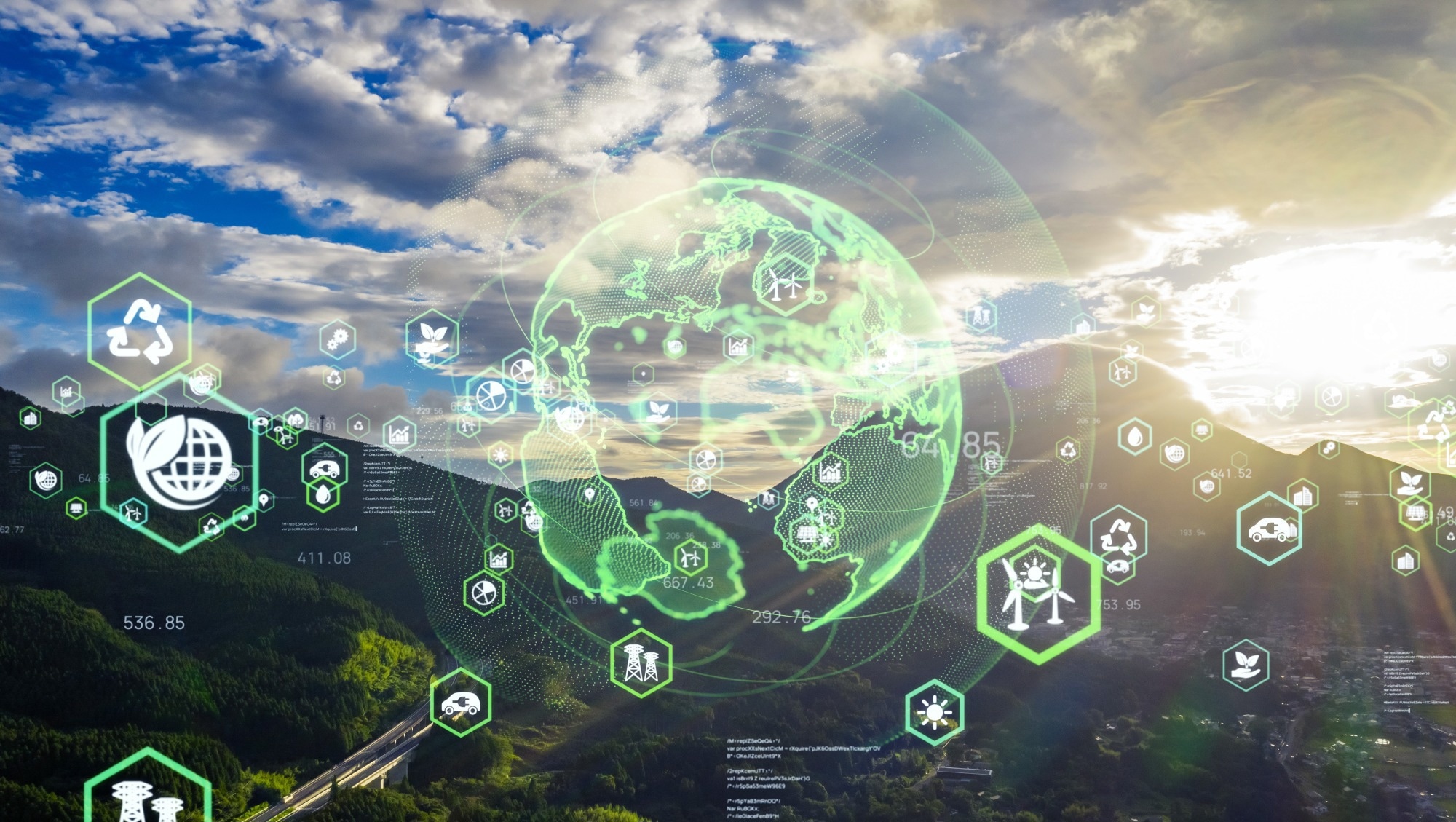A perspective piece recently published in PNAS calls for greater convergence between artificial intelligence (AI) and ecological research to tackle complex challenges like climate change. Authored by scientists across disciplines, the article spotlights the critical need and potential for purposeful synergy between the two fields. Combining ecological knowledge with advances in AI could accelerate discovery and solutions for persisting on an unpredictable planet.
 Study: Bridging Nature and Technology: The Synergistic Future of AI and Ecology. Image credit: metamorworks/Shutterstock
Study: Bridging Nature and Technology: The Synergistic Future of AI and Ecology. Image credit: metamorworks/Shutterstock
Both ecology and AI strive to understand complex phenomena through predictive modeling. Ecological systems exhibit nonlinear dynamics with feedback across scales. Similarly, AI systems like neural networks discern patterns to make decisions in a particular domain. However, ecological complexity remains challenging to capture even for state-of-the-art deep learning. The authors contend that advances in AI inspired by ecological systems could push closer to artificial general intelligence (AGI). Meanwhile, injecting ecological knowledge into AI architectures can improve predictions and extrapolation.
The Promise of Convergence
While ecology and AI have made asynchronous progress, the researchers foresee an imminent convergence. They argue for “coproduced, convergent research” that interweaves the disciplines rather than siloed AI applications to ecology. This convergence paradigm can yield breakthroughs beyond what each field could achieve independently.
Ecological systems possess resilient properties that could inform more robust AI. The empirical study of ecological complexity offers a wealth of modeling techniques and inspiration for novel AI architectures. Embedding ecological knowledge into AI can also produce more consistent predictions. The strategic synergy between the disciplines can accelerate discovery and ecological understanding essential for societal needs.
Compared to inventions in computation, adopting new techniques has historically lagged in ecological modeling. For instance, partial differential equations were applied to population growth 50 years after introduction. Deep learning has entered ecology decades after revolutionizing computer vision. Nevertheless, this lag may be closing as AI proliferates across the sciences. The use of machine learning in ecology has rapidly increased in recent years. Still, AI must be utilized more for ecological synthesis or generating hypotheses.
Resilient AI through ecology
Ecological resilience theory offers clues for building adaptable AI systems with feedback loops and redundancy. Understanding ecological resilience could help instill the brittleness still plaguing AI. Exploring redundancy and decentralized emergence can lead to AI architectures with greater context-dependent behavior. Evolutionary computing demonstrates how ecological principles can direct AI evolution for set goals. Ecology provides an expansive arena to reveal biological inspirations for novel AI paradigms.
Many ecological datasets are limited, whereas deep neural networks need substantial training data. Knowledge-guided machine learning (KGML) addresses this by incorporating scientific knowledge into AI architectures. Rather than relying solely on patterns in data, KGML leverages theory, physical laws, and ontological knowledge. Custom loss functions, novel model structures, and process model integration inject domain expertise into machine learning. Advancing KGML techniques through ecology problems could enhance generalization and mechanistic understanding.
Ecological distributions are often multimodal, but models can collapse into few observed modes—however, techniques from ecology, like telegraph equations, better capture such distributions. The authors suggest ecology-inspired AI could generate hypotheses about driving factors, like those behind bimodal Ebola spillovers. Here, convergence can mutually benefit AI capability and ecological insight. Another key challenge is identifying missing relationships in ecological networks, where AI shows promise for novel hypothesis generation.
The paper emphasizes responsible practices for AI and ecology. Non-inclusive data and paradigms still pervade both fields. Intersectional perspectives and engagement with local communities could mitigate biases. Respecting diverse knowledge systems and indigenous data sovereignty fosters more ethical integration of AI in ecology. Overall, transdisciplinary convergence should confront epistemological barriers to enable environmentally grounded AI.
Looking to the Future
Rapid environmental change poses existential threats, lending urgency to AI-ecology convergence. This requires investment along multiple fronts, from tackling biases to navigating philosophical differences. However, the payoff will be paradigm-shifting, perhaps unlocking the resilience needed for chaotic futures. As chatbot breakthroughs presage disruptive profound learning advances, the strategic synergy between ecology and AI is critical for understanding and protecting complex systems. More broadly, uniting these disciplines exemplifies the spirit of convergence science essential for society’s most significant challenges.
However, this vision faces substantial obstacles. Integrating diverse modeling philosophies poses theoretical and technical hurdles. Practical techniques for embedding ecological knowledge into modern deep learning are still developing. More interpretable AI is needed before discoveries can fruitfully link back to ecological mechanisms. The computational demands of high-fidelity ecological modeling may constrain integration. Most fundamentally, the different aims of prediction versus explanation conflict - AI seeks performance while ecology pursues understanding.
Several cautions warrant consideration as well. AI inspired by reduced ecological models may inherit their limitations. Algorithms mimicking evolution could lead to unethical outcomes without oversight. Relying on AI hypothesis generation might erode scientific creativity and rigor. Communication across disciplines would help the synergy. Lastly, convergence could be driven by hype rather than genuine benefit if application is prioritized over foundational advances.
The path to this interdisciplinary future remains nebulous. Reformulating complex questions in a shared conceptual language is essential. Collaborative experiments can determine which fusion approaches enhance insight versus merely complicate interpretation. Ultimately, convergence will progress not through overnight revolutions but gradual layered progress at the fertile intersection of AI and ecology.
Journal reference:
- Han, B. A., Varshney, K. R., LaDeau, S., Subramaniam, A., Weathers, K. C., & Zwart, J. (2023). A synergistic future for AI and ecology. Proceedings of the National Academy of Sciences, 120(38). https://doi.org/10.1073/pnas.2220283120, https://www.pnas.org/doi/10.1073/pnas.2220283120